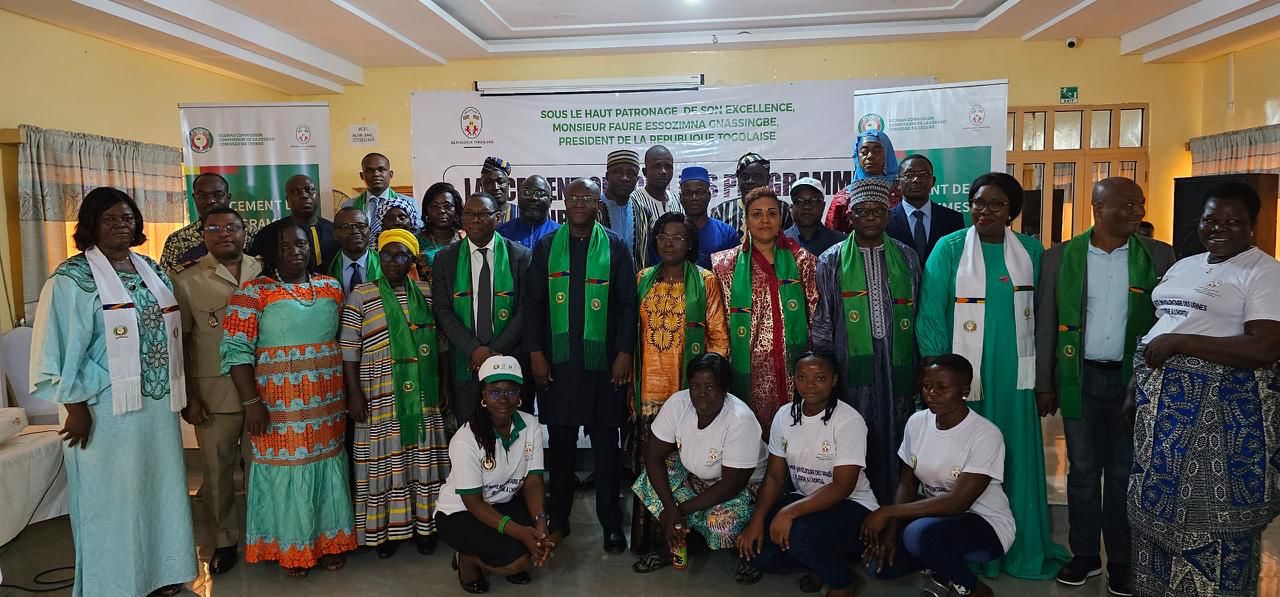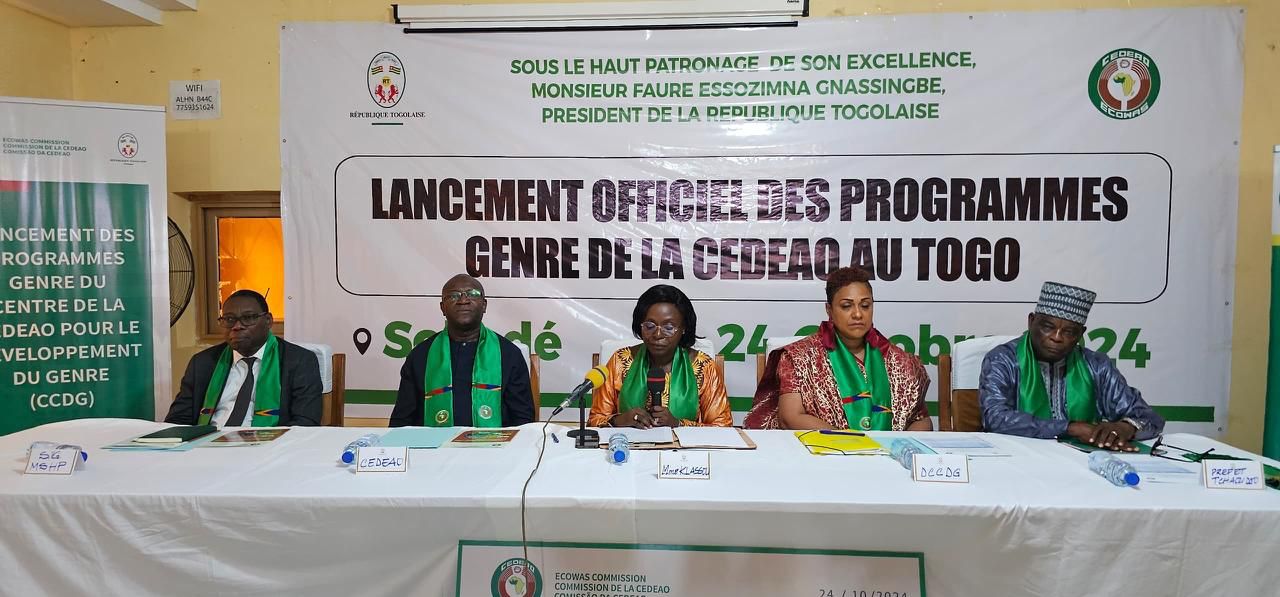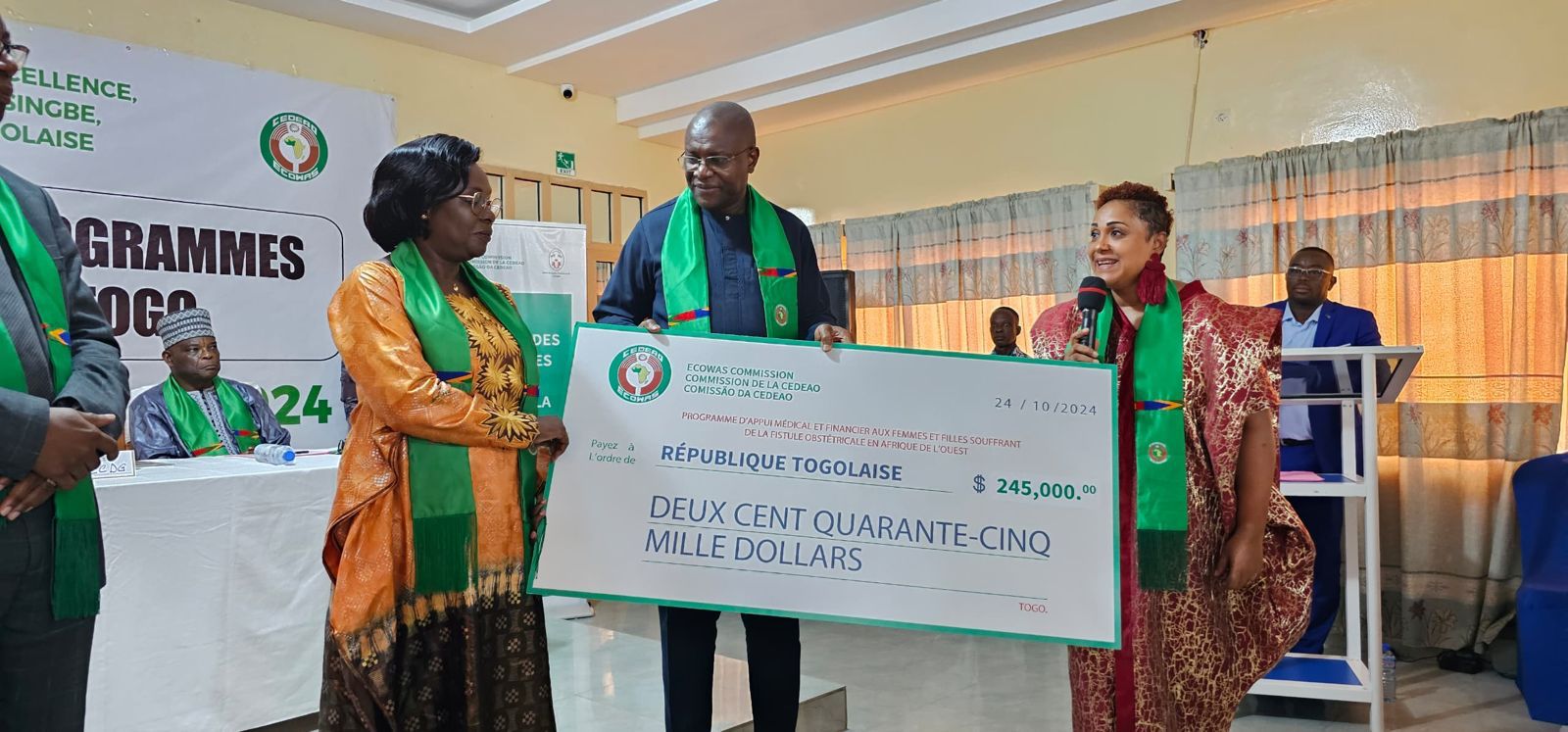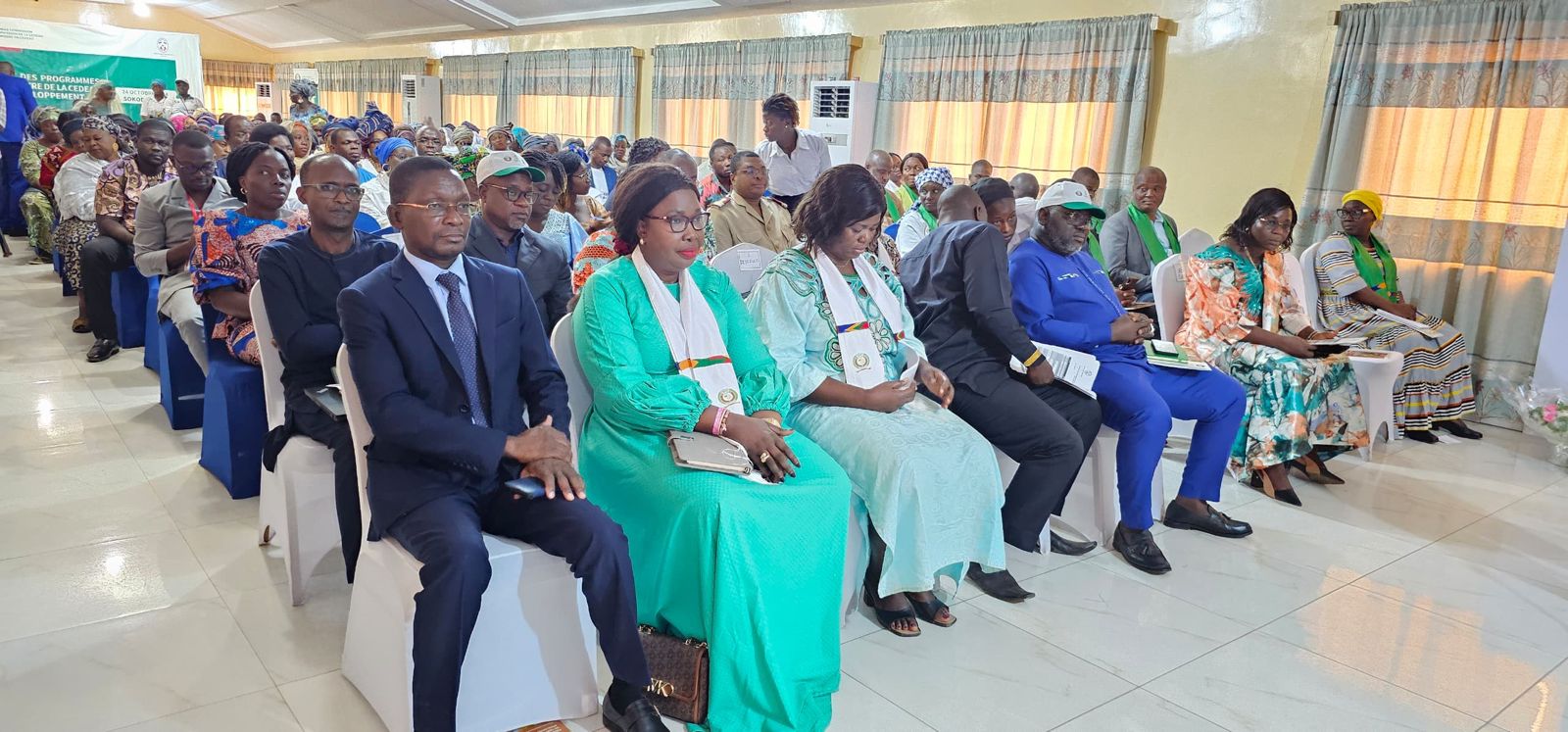ECOWAS Launches Gender Programmes in Togo
28 Oct, 2024The Economic Community of West African States (ECOWAS) through its Gender Development Centre (EGDC) has launched the EGDC’s gender programmes for Togo on October 24, 2024, in Sokodé, Togo, as part of its commitment to ensure equal opportunities for all in the region.
To implement EGDC’s Gender programmes, a cheque of USD245,000 was presented to the Togolese Republic for the Obstetric Fistula programme. In 2024, ECOWAS is providing funding support to 8 Member States to contribute towards the eradication of obstetric Fistula from the ECOWAS region.
The funds are meant for the four (4) key components of the Fistula programme; surgical repair of women and girls suffering from obstetric Fistula, the socio-economic reintegration of Fistula survivors into their communities, sensitisation campaigns to raise awareness on the causes and prevention of obstetric fistula, and the rehabilitation of national Fistula referral centres.
In her remarks, Professor Fatou Sow Sarr, the Commissioner of Human Development and Social Affairs of the ECOWAS Commission, represented by Mrs. Sandra Oulaté Fattoh, the Director of the ECOWAS Gender Development Centre, highlighted that the health sector in Togo, like other West African countries, faces a high rate of obstetric fistula, with prevalence estimated at between 1,200 and 18,500 cases.
“It is with all these observations in mind that ECOWAS, through the CCDG, intends to work harder for changes that are favourable to the Gender Agenda by taking actions that contribute to the formation of resilient communities that are open to equal rights between women and men in the West African region through the implementation of well-targeted and designed activities with a strong socio-economic impact on the beneficiaries in order to bring added value to what is already being done at the level of the Member States.” She added.
In his Statement, Professor Tchin Darre, the Minister of Health and Public Hygiene of the Republic of Togo, represented by Dr. Kokou Wotobe, the Secretary General of the Ministry, expressed his gratitude to the various ECOWAS bodies, especially the EGDC for the continuous support which ranks Togo among the privileged beneficiaries.
He stressed that “the response to the problem of obstetric fistula must be multisectoral because it is necessary to address the underlying causes, including the lack of access to health services and education, the persistence of poverty and gender inequality, child marriage, teenage pregnancy and the lack of protection of fundamental rights, and it is to these needs that the other EGDC programs respond, I want to mention: the School Scholarships, Economic Transformation and 50 Million Women Speak programs”.
While opening the launch of the EGDC programmes, Professor Kossiwa Zinsou-Klassou, the Minister of Social Affairs, Solidarity and the Promotion of Women of the Republic of Togo, stressed that the fight against obstetric fistula beyond reconstructive surgery, requires a multisectoral and contributory approach for holistic management of the various problems faced by victims.
“I urgently appeal to all stakeholders for greater mobilization of resources for the effective implementation of the strategic plan to combat obstetric fistula in our country. I also take this opportunity today to congratulate these courageous women who have come forward by coming to be screened, despite the discrimination, misperceptions and ostracism surrounding this terrible disease. I urge them to be the Government’s torchbearer for our sisters who are wounded in the soul and who are hidden in the shadows, rejected by their husbands and their community”, she added.
The EGDC has implemented several initiatives in Togo that aims to empower women and girls, which include: Medical and Financial Support Program which helps women and girls affected by obstetric fistula, allowing them to regain their dignity and lead a productive life; Support Program for the Promotion of Girls which offers scholarships of excellence to brilliant young girls from poor families; Technical and Financial Support Program for Women which strengthens the economic power of women working in the agricultural, fisheries and craft sectors, thus promoting their total empowerment, and the “50 Million Women Speak” Project which empowers women through a virtual platform, promoting networking and access to the information necessary for the creation and development of their businesses, among others.





















